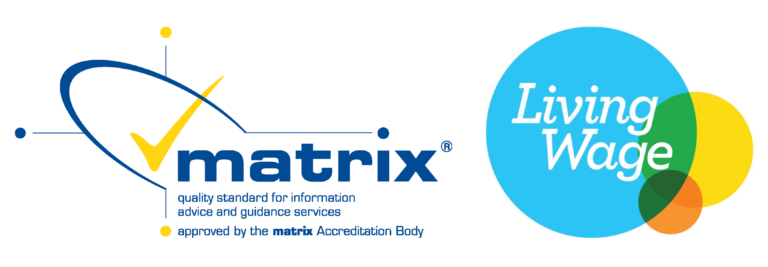Written by Tariq Sadiq, Careers Development Professional
As part of our new quarterly careers newsletter, which you can sign up for here, we’ll be posting pieces from our careers guidance team.
As it’s the first issue, we’re starting with the foundational stuff: theories of careers guidance. You’ll often come across young potential recruits with lots of ideas about what they want to do with their working life, how they want to progress, and where they want to go in future. Learning about the theories that underpin what they’ve heard whilst at school can help you understand how best to work with them and develop them as employees.
Personal career guidance is an important part of Form the Future’s work. The opportunity for a young person to sit down for up to an hour with a careers adviser and to really explore their options in depth is crucial to careers education. How we deliver such guidance reflects changing theories of how people make decisions about their lives and what factors influence them.
Career theories dominant in the 1950s, tended to take quite a mechanistic or rational approach, perhaps reflecting the legacy of the industrial revolution. It was the idea that different personality ‘traits’ could be matched to defined ‘factors’ in different job types.
Known as ‘differentialism’ or ‘trait and factor’, this approach sought to fit people into neat little categories of work. J.L. Holland defined six personalities and matched them to six occupation types. So, for example, if you were ‘Realistic’ you were quite practical and liked to fix things and therefore you were quite well suited to ‘Motoric’ occupations like operating machinery or cleaning windows and so on. If the degree of congruity between personality and occupation was high then you were more likely to be happy in your work and get on with like-minded colleagues. If you clearly fitted one personality type, then you would find it easier to make career decisions than someone who had a variety of interests.
Differentialism is still quite dominant to this day and is reflected in personality or job matching tests such as the ones you find on the National Careers Service website. Its simplicity and measurability appeals to many but as we know, people aren’t that straightforward, otherwise our jobs would be easy, and it can only ever be a part of the toolkit rather than the whole story.
The 1960s saw the emergence of ‘Developmentalism’ which recognised that people weren’t fixed quantities but developed and matured over time. This ‘vocational’ or ‘career maturity’ meant that decision-making was a lifelong process reflecting different stages in life. Initially, these theories tended to reflect the experiences of white, middle-class, professional men and assumed predictable, stable career paths which no longer exist, but in 1990, D. Super updated his original ‘lifespan’ theory and devised the concept of the ‘life-career rainbow’, which took account of the different roles we play in our lives at different stages and led to the idea of the ‘work-life balance’.
As the discipline of sociology grew in the 1970s, there was a growing realisation that ‘structural’ barriers meant that many people simply could not access opportunities and therefore their career options were limited. Inconvenient working hours, low-pay, unwelcoming work environments, community expectations, prejudice, and general lack of social capital disadvantaged many. These barriers either needed to be overcome through social change or mitigated by building the capacity of individuals. Critics of ‘structuralism’ pointed out that it reduced the agency of individuals and that some were able to succeed despite the disadvantages they faced.
Modern theories aim to integrate both structure and agency using behavioural psychology to gain a deeper, more sophisticated understanding of human decision-making. Social Learning theorists like J. D. Krumbolz wrote about the interplay of different factors: genetic, environmental, learned experiences, and skills. Other advocates focused on the importance of the process of learning (B. Law) and how it influences what we learn, and of self-efficacy (A. Bandura) or the ability to succeed through persistence.[1]
Randomness and accidental events lie at the heart of ‘Planned Happenstance’ and ‘Chaos’ theories. The rapid pace of change and its unpredictable effects suggests that our ability to control events is limited but we can ‘plan’ for unpredictability by developing our networks and connections, building our skills, and being open to unexpected opportunities, ready to grab them when they arise. The focus then shifts from devising long-term career plans to the development of career management skills.[2]
Over the last 70 years or so we have seen a shift from ‘positivist’ theories where the individual was seen as a rational decision-maker to ‘constructivist’ approaches based on the idea of a complex and multi-faceted individual creating their own reality within their social context. The individual is their own expert rather than the careers adviser whose role is to help the client create their own ‘narrative’. Deep listening skills become very important as well as an understanding of the individual’s emotional and social drivers and greater cultural sensitivity. Hambly and Bomford recommend a series of tools like storyboarding and the use of metaphor to explore these.[3]
Looking ahead, the explosion of connectivity and the range of influences available to young people through the internet and social media greatly expands their horizons. With the right level of ‘self-efficacy’, they can overcome structural barriers because knowledge is much more accessible and they are exposed to many more role models compared to their parents.
The ability to generate income from social media also changes the nature of work and it no longer fits the 9-5 stereotype. Also, what is the impact of the climate crisis and how will it influence the careers that young people decide to pursue? The Covid pandemic too has shifted attitudes to work-life balance, changing the perceived value attached to different careers as well reducing the importance of distance and geography in accessing work. Employers will need to take account of the myriad factors that now influence the choices of young people.
I doubt that there will be any shortage of work for career theorists any time soon and the role of the careers adviser will also continue to be crucial as we help young people navigate this chaotic and confusing world.
[1] Hambly L, Bomford C: Creative Career Coaching; p19 (2019, Routledge)
[2] Ibid, p21
[3] Ibid, p23



